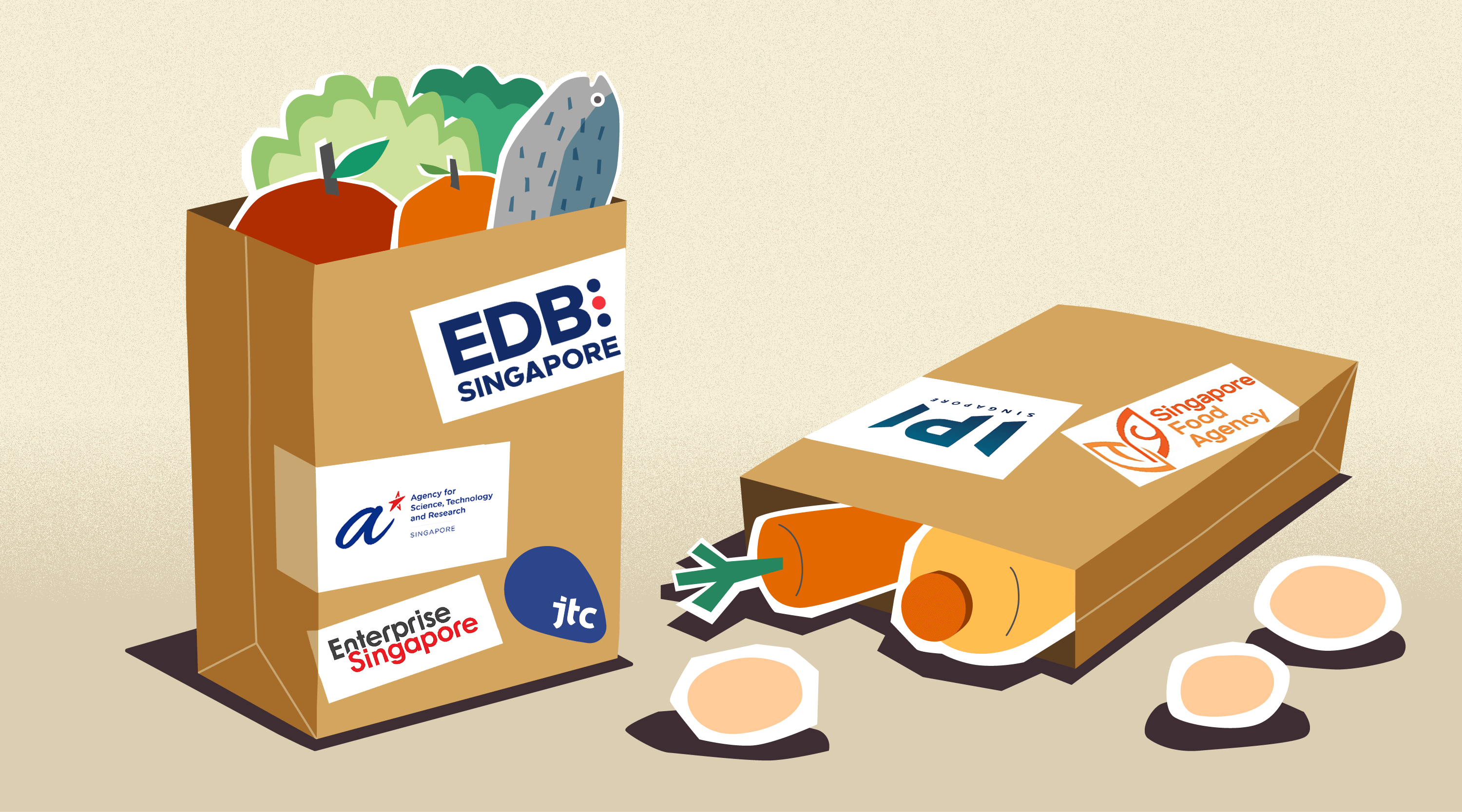Alternative Proteins: “Impossibly Real” Plant-Based Meat

A Trend to Watch
With food favourites like Hainanese chicken rice, satay and nasi lemak, food makes up a huge part of our Singaporean identity. But global developments are rocking our food landscape.
On June 1, Malaysia announced a ban on chicken exports for a month, which was later extended. As a third of Singapore’s poultry imports came from Malaysia, this sparked news of anticipated price increases and potential shortages of chicken. The COVID-19 pandemic, climate change and geopolitical uncertainties have also caused supply disruptions in the global food system.
According to the Singapore Food Agency (SFA), over 90% of our food today is imported from an increasingly disrupted world.
With only 1% of Singapore’s land available for food production, Singapore has looked to innovative food solutions to strengthen our food security. This includes plans to develop Singapore into an agri-food hub to grow more food with less.
Singapore’s “30 by 30” goal to develop the capability and capacity of the agri-food industry to sustainably produce 30% of Singapore’s nutritional needs locally by 2030 can be achieved with technology and innovation. Alternative protein is one such innovation, and demand in Singapore has been growing.
Blackbox Research found that 77% of Singaporeans say they are willing to switch to substitutes for at least 10% of their meat consumption, if the taste is good and the costs are similar. This includes protein forms with no history of being consumed as food, which are known as novel foods.
Besides soy, wheat and other plant-derived proteins, proteins can also come from fungi and algae. New technologies to grow animal cells to produce cultured meat are also being used.
How Safe Are Novel Foods?
In Singapore, novel foods must be assessed for safety and companies need to obtain SFA’s pre-market approval before the products can be sold. For SFA’s review, all companies must provide detailed information such as potential food safety risks, the materials used in manufacturing processes and how these processes are controlled to prevent food safety risks.
The SFA has also formed an expert working group on the safety of novel food to ensure that safety assessments are rigorously reviewed by experts in the field. Even when approved for sale, these novel foods remain subject to food safety requirements.
The Future Ready Food Safety Hub (FRESH) was launched in 2021 by the SFA, the
Agency for Science, Technology and Research (A*STAR) and the Nanyang Technological University to build food safety science R&D capabilities for novel foods.

Explainer
Growing the Food Market in Singapore
Within the Public Service, different agencies work together to whet the local appetite for alternative proteins.
Enterprise Singapore (EnterpriseSG) launched FoodInnovate in 2018 – together with the Economic Development Board (EDB), A*STAR, SFA, Innovation Partner for Impact (IPI) Singapore and JTC Corporation – to grow Singapore’s food manufacturing industry through innovation.
This initiative provides resources, knowledge and infrastructure to Singapore food companies, enabling new and sustainable food products to be developed to meet consumers' nutrition needs.
The EDB encourages multinational companies to set up a base in Singapore, whereas EnterpriseSG supports the growth of Singapore companies both locally and overseas.
The EDB has partnered with innovators all over the world like Perfect Day and Bühler to grow Singapore’s ecosystem and commercialisation of agri-food technologies.
EnterpriseSG, in its focus on strengthening the food tech ecosystem, has helped local companies such as Tee Yih Jia, a traditional food manufacturer that now has a plant-based range of food under the brand ALTN.
A*STAR and the SFA have also jointly developed the Singapore Food Story R&D Programme to build a strong base of R&D capabilities in local research institutions in partnership with industry, and undertake cross-domain research in emerging areas of the agri-tech and food space, including alternative proteins.
Global Outlook
The Future of Protein Products
A look at alternative protein start-ups around the world
Singapore
A report by sustainability company abillion, in partnership with Enterprise Singapore (EnterpriseSG), found that Singaporean consumers’ interest in plant-based meat surged due to a greater awareness of sustainability and health since the COVID-19 pandemic.
As of 2022, around 30 companies developing alternative proteins have set up in Singapore. One example is Growthwell Foods, a local company with several brands focusing on plant-based meat and seafood, Asian meals and sauces, and chickpea milk.
Meat From Cell Culture
In December 2020, Singapore became the first country to approve the sale of cell-based meat. In early 2023, Asia's largest cultivated chicken facility will be built in Bedok, providing more options for food-obsessed Singaporeans.
The US
In a report by MarketsAndMarkets, the US plant-based meat market was valued at US$1.06 billion (about S$1.45 billion) in 2020, and is estimated to reach US$2.63 billion (S$3.61 billion) by 2027.
In Los Angeles, California, start-up Daring Foods produces plant-based chicken to overcome the animal abuse and environmental impact associated with factory farming. Their products are also marketed as a healthier alternative to chicken, using cholesterol-free ingredients rich in protein and fibre.

Spain
In Spain, plant-based meat is gaining popularity. According to ResearchAndMarkets, the annual growth rate of the Spanish plant-based meat market is 6.7% – and this is estimated to reach €621.87 million (S$914.26 million) by 2023.
In 2018, Barcelona-based NovaMeat became known as the world’s first meat producer to use custom 3-D printing. It develops plant-based steak and pork with 3-D printing machines.
New Zealand
In research done by Food Frontier, 1 in 3 New Zealanders consciously limit their meat consumption, and more than 6 in 10 have tried or are interested in trying plant-based meat products.
Christchurch start-up Berkano Foods develops vegan beef, lamb, pork and cheese. These protein alternatives also go into convenient and affordable ready-to-eat meals.
India
According to a survey by Frontiers in Sustainable Food Systems, 62.8% of people in India were very likely to purchase plant-based meat, with 31.7% somewhat or moderately likely to, and 5.5% not at all likely to try it.
Based in Mumbai, Imagine Meats provides a wide range of plant-based meat for kebabs, burgers and biryani. The start-up’s products are marketed as having no cholesterol, animal hormones or antibiotics.

Learn the Lingo
Meatatarian: A person who exclusively or predominantly eats meat. Often used humorously in comparison to vegetarians.
Vegetarian: Someone who does not eat meat or fish, usually for moral, religious or health reasons.
Vegan: Someone who does not consume any meat or animal products, including eggs, dairy and honey. This practice may extend to non-food products such as avoiding leather and wool.
Flexitarian: Someone who eats mostly vegetarian food, and meat and seafood only occasionally.
Pescetarian: Someone who eats fish and seafood, but not other types of animal-based protein.
- POSTED ON
Aug 17, 2022
- TEXT BY
Felicia Keok
- ILLUSTRATION BY
Hong Myungjin









